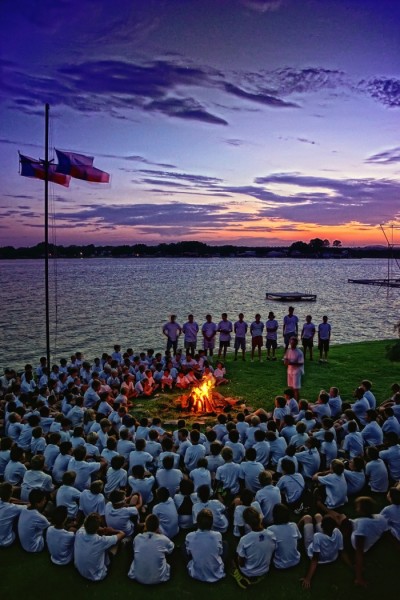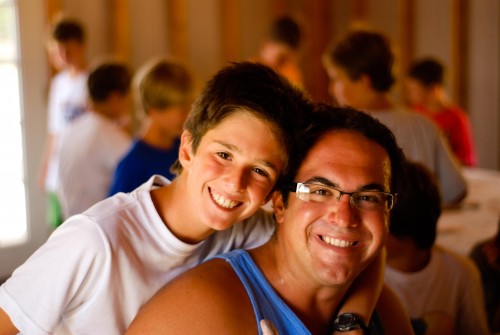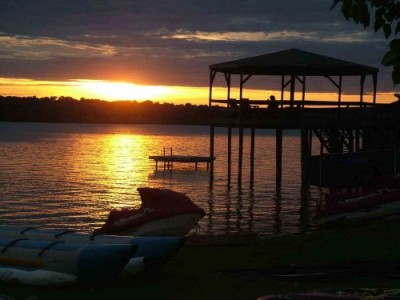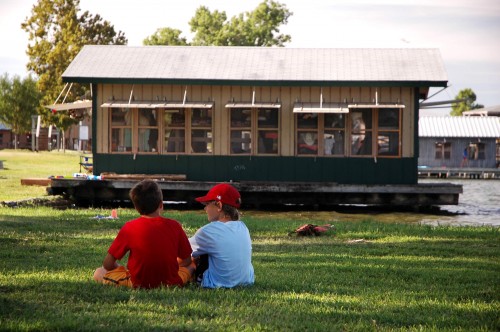Steve Baskin, Guest Blog Contributor and Owner of Camp Champions
Marble Falls, Texas
Note: This month’s theme is “Back to Basics” and we thought it would be great to reinvite Steve to guest blog for us again. Steve and Susie are owners and summer camp directors who firmly believe the in the value that camp can bring into a young person’s life.
Having an extensive background in growing up attending camp, Steve knows many first-time camper’s fear of trekking into new territory, with unknown strangers, and (possibly the scariest of it all) a foreign experience without parents by one’s side. It was through one camp counselor’s interaction with Steve that his view of himself and confidence in himself changed for a lifetime. The powerful impact of camp includes the gifts of being able to build interpersonal, conceptualization and character skills among peers. Camp has also helped so many connect, collaborate and build tenacity within young adolescents in a safe and exciting space away from media and technology.
“Do not be conformed to this world,but be transformed by the renewal of your mind, that by testing you may discern what is the will of God, what is good and acceptable and perfect.” (Romans 12:2).
This world is filled with distractions. Every good and perfect gift comes from the Lord, but even those good gifts can become obstructions in our path to growing more intimate with Jesus. We are too busy to discern what the will of God is because we are preoccupied with the latest Facebook updates about so and so’s trip to wherever and what so and so ate for lunch.
So, how are we supposed to transform our minds when aside from social media, there are hundreds of other distractions that do not help us focus on kingdom-minded living? We need to go back to the basics. Transformation comes later, but begins from the steady, daily renewal of our minds and hearts. This starts with sitting at the feet of Jesus soaking in His presence, meditating on His Word night and day, and listening to His voice as we lift up our praises and humble requests for his help. Which of these basics do you want to revisit this month?
– FEBC-Korea in LA Staff
My wife Susie and I are summer camp directors and we deeply love what we do. We know that we impact hundreds of children every year, helping them become more confident and competent than they would otherwise be. When we see adults who were once campers with us, we see people who are committed parents, spouses and leaders in their communities.
I recently served on the national board of the American Camp Association and a fellow board member presented me this simple question: what is the greatest gift of camp? This is no easy question. Camp is a place for joyous fun and fabulous friendships. Campers learn to love nature and often feel a greater connection to the Almighty.
But I believe the greatest gift is a somewhat ironic one: camp is a tech-free environment that prepares people to thrive in our tech-centric modern world.
It only took me over 20 years to answer that question. In fact, you could even say that it took me over 40 years. To make this point, allow me to share again my first summer camp experience.
In 1972, my parents sent me to summer camp for 5 weeks. I was only 8 and I did not want to go. I was experiencing a crisis of confidence and was certain that I did not have the “goods” to survive without my parents. My confidence crisis came from the fact that I was not “Mighty Mouse”. This requires an explanation.
My older brother (10 years my senior) was the All-District center on the football team. In West Texas, home of “Friday Night Lights”, this was the gold standard. My brother was undersized and often blocked people substantially heavier than he, earning the nickname “Mighty Mouse”. In fact, the winning homecoming float was a 16-foot paper mache Mighty Mouse wearing his jersey. This was wonderful for him, but a challenge for me.
I was a chronic asthmatic who was allergic to Bermuda grass. My efforts to play were met with asthma attacks. That was not a problem. The problem was the fact that other people looked at me as if I would never measure up to my brother. I wondered about my own self worth. Sure, my parents told me it did not matter, but that was not comforting. It was their job to make me feel better, so their encouragement felt hollow. That summer they sent me to camp. I did not want to go and arrived terrified. I was among the last to arrive and walked in like I was approaching a firing line.
What happened next was among the most important moments of my life.
A young man aged 19 or 20 walked up to me, knelt down to make sure he made direct eye contact, and started to talk.You must be Steve. I’m Bill. Wow, I have been waiting all day for you to get here. In fact, the rest of the guys are back in the cabin and they have been dying to meet you. Come on, buddy – let’s go play!!” For the next 5 weeks, every interaction I had with Bill had a simple message embedded in it – his life was made richer because this asthmatic 8 year-old had been part of it. I went home confident that I was spectacular. OK, I could not play football (I would soon adopt tennis instead), but an awesome role model had decided I was special. I never looked back.
When Bill knelt down, he had no idea what he had done for me. I suspect that he has not thought about me in over 40 years.
Yet had he not connected with me, I would certainly not have eventually become a camp director or had the opportunity to work with thousands of families over the past two decades. He instilled in me a deep love of the power of summer camp. I would return for 11 summers. I then spent 8 years in the “real world” of finance and consulting, but I returned in 1993 to start a camp of my own. Ever since then, I have struggled to understand and explain why camp had such a powerful impact on me and on the children I work with.
In the recent years, education and youth development research has made discoveries that help explain this powerful impact. The material includes studies by the Partnership for 21st Century Skills and the research described in Paul Tough’s “How Children Succeed”. A common theme throughout all of this work is the importance of “non-cognitive skills”. It turns out that “non-cognitive skills” are critical to success in college and beyond. Our conventional education system has traditionally focused on cognitive skills (math, reading, science) while essentially ignoring the “softer” non-cognitive skills. They are harder to measure, so they are also less likely to be managed. Yet we are now learning that they are the key to rebounding from challenges, interacting with other people and finding meaning in life.
They are also a love letter to summer camps –great camps focus on teaching the very skills that we now know are critically important.
In fact, this research has convinced me that camps are even more relevant than I had previously thought.
As I read the material, the non-cognitive skills seem to fall into three buckets:
-
Interpersonal skills. This bucket includes oral communication, collaboration, conflict resolution and leadership. These face-to-face skills erode as our children spend less time in free play and more time interacting with electronic screens.
-
Conceptualization skills. This bucket includes creativity and critical thinking. By critical thinking, the experts do not mean the acumen to solve a math proof, but instead the ability to synthesize different (often unrelated) concepts and develop new answers.
-
Character skills. This bucket includes attributes like grit, curiosity, initiative, and zest.
Certainly academic success is important, but most everyone else focuses on academic skills. The skills listed above are under-emphasized but no less important. In fact, these are the very skills that make anyone a better parent, spouse, employee, entrepreneur or church leader. But what does camp have to do with that? It is because all skills require practice. Oral communication, collaboration, leadership and resilience are all skills.
But when we replace face-to-face time with screen-to-screen time, we stop practicing the skills that enable us to connect. The ability to communicate orally is a skill that requires more than a mastery of words, but also the ability to read body language, hear intonations and “feel” others emotions. Collaboration is also a skill, as is leadership. Even resilience is a skill. I want my campers (and my own children) to be comfortable with failure as see it as a teacher. I then want them to have the knowledge that continued effort and tenacity can help them overcome failure. How can they learn that if they never experience it?
In camp, we have no technology to distract us. We offer many activities so every camper can experience easy successes as well as temporary setbacks. And, perhaps most importantly, we surround the campers with young adults who model the skills and behaviors that the children need to learn. We help them become better teammates, leaders, partners and servants. So while I love the laughter and joy and friendship of camp, I most love knowing that we are sending young people into the world that needs their heart and their skills. I love knowing we have helped prepare them to be successful, and content, citizens. As our own children are preparing to go to college, I know they are ready to be successful citizens.
Learn more about our Guest Blog Contributor, Steve Baskin:
Steve Baskin owns and operates Camp Champions with his wife Susie. A graduate of Harvard Business School, Steve left investment banking to pursue a career that would positively impact children. He is an advocate for “camp education” (using camp to foster the skills that lead to a full and successful life) and has served on the board of the American Camp Association, speaks frequently (including a TEDx talk) and writes for Psychology Today. To learn more about Camp Champions, please visit http://blog.campchampions.com.







Leave A Comment